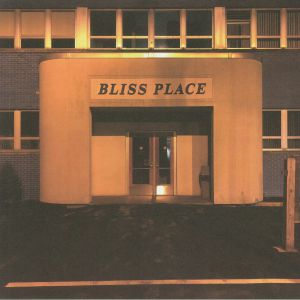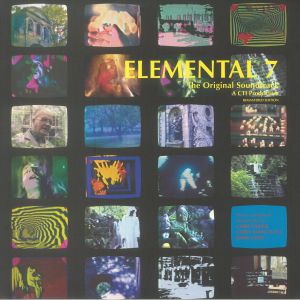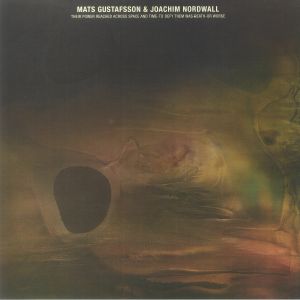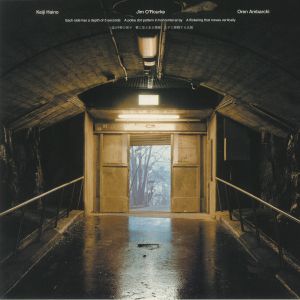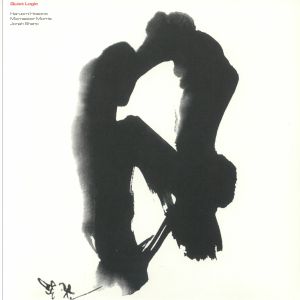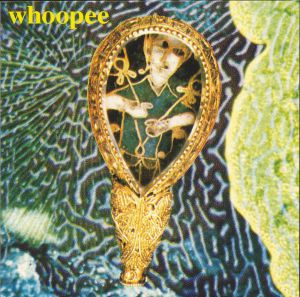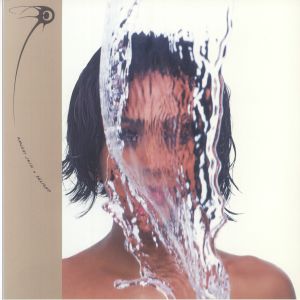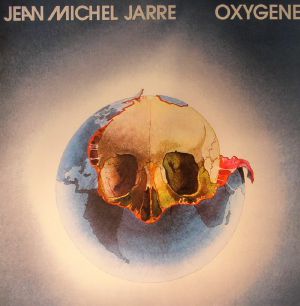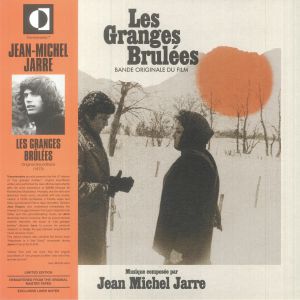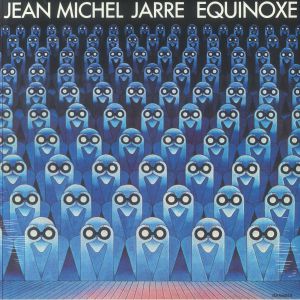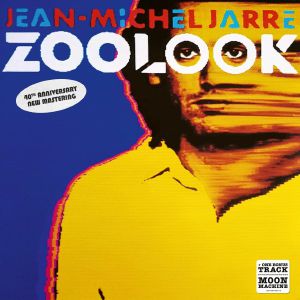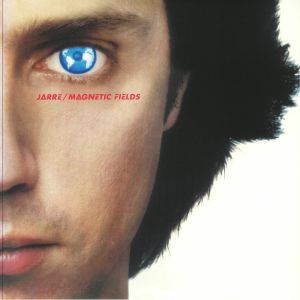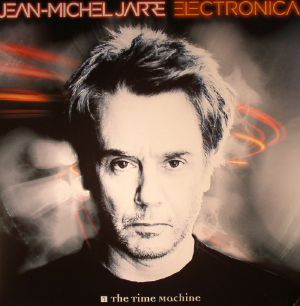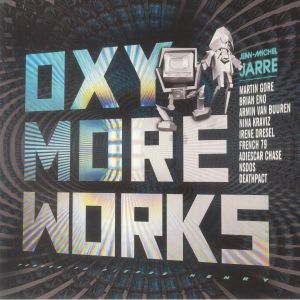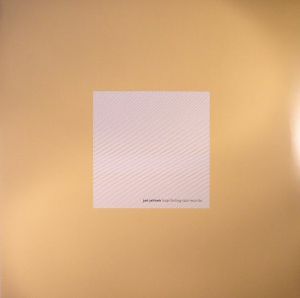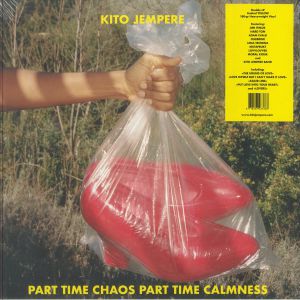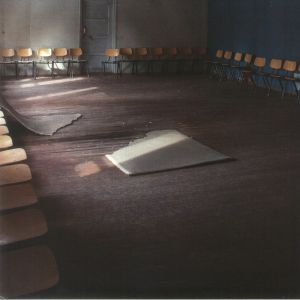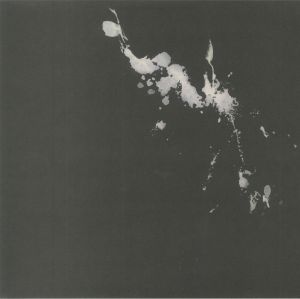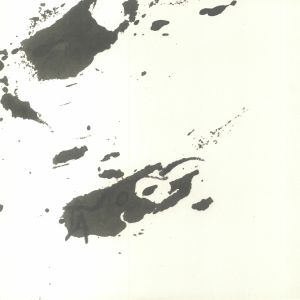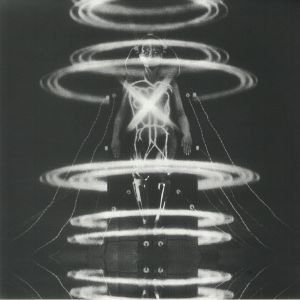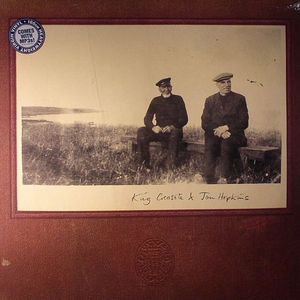Filter
Stock
Type
Music
Format
Label
Featured
Release Title
Price
Tags
Back catalogue: Experimental/Electronic
Juno's full catalogue of Experimental/Electronic
Álbumes
Bliss Place (LP limited to 300 copies)
Cat: FULLBLOOM 8103. Rel: 15 Jul 21
in stock $29.83
Elemental 7 (Soundtrack) (reissue) (green vinyl LP)
Cat: CTIE 722. Rel: 23 Mar 23
Review: Expanding on the ever-present fervour for classic industrial music, CTI's Elemental 7 lands in our laps, a reissue of the soundtrack to their 1982 film of the same name. Devastating and brutal sound effects are paired with haunting vocal performances on this two-suite clanker for the ages, while the accompanying video features cut-up video clips and dancing ghosts, while nods in the titles refer to seances and exorcisms. Don't pass on this one, as it's not just any old soundtrack; underwater worlds and vaporeal explosions make up its more unusual sonics.
… Read more in stock $14.64
Ghadr (LP + insert)
Cat: RPTD 055LP. Rel: 19 Dec 24
in stock $27.37
in stock $27.37
Cat: THRILL 577LP. Rel: 30 Mar 23
in stock $24.87
Each Side Has A Depth Of 5 Seconds A Polka Dot Pattern In Horizontal Array A Flickering That Moves Vertically (gatefold LP)
Cat: BLACKTRUFFLE 074. Rel: 21 Oct 21
in stock $25.71
Quiet Logic (remastered) (limited bio vinyl 2xLP + insert)
Cat: WRWTFWW 083. Rel: 02 May 24
Review: Originally released in 1998, Mixmaster Morris & Jonah Sharp's Quiet Logic surprisingly flew under the radar when it came out.- perhaps because of the huge amount of electronic music being released at the time. The pair have some of the most important albums and tracks in their respected genres and are arguably two of the most important figures in the electronic music chill out scene from the 90s, and when you add the input of Haruomi Hosono from Yellow Magic Orchestra on two tracks, it becomes an even more essential listen. Chill out heads unite!
… Read more in stock $37.04
in stock $17.96
Review: In 2020, Nicolas Jaar composed Piedras for a concert at the Museum of Memory & Human Rights in Santiago, Chile, which honoured the many victims of Pinochet's dictatorship. The project evolved into Archivos de Radio Piedras, a radio play shared via Telegram between 2022 and 2023. In 2024, it became a 24-channel installation at MUAC in Mexico City. The music, partly attributed to the fictional Salinas Hasbun, explores themes of memory and identity. The play unfolds in a future with an internet blackout, where characters use DIY radio to mourn Hasbun's disappearance, with the unstable radio frequencies symbolising shifting truths. Now served up on vinyl, the album is a blend of ambient, found sounds, experimental rhythms and eerie synth design.
… Read more in stock $32.88
Review: Bristol has a lot to answer for when it comes to atmospheric downtempo stuff. The birthplace of trip hop is still commonly associated with the genre decades after its inception, but this shouldn't make anyone think for a second the city has sat idly by gorging on the fatted calfs of Massive Attack, Portishead and the like without pushing further experimentations in the art of sombre, slow, emotional electronica. Jabu are a great case in point, and if the world were different, fairer, and less overwhelmed with band names you can bet your bottom dollar this South West England trio would be household treasures by now. Having released a number of genuinely mesmerising albums packed with meditations on loss, landing on exalted labels such as Blackest Ever Black, here they present a generous helping of unreleased and previously unheard bits and pieces that led to the back catalogue we now have. Tellingly, everything here was always worthy of release, so it's great this has finally happened.
… Read more in stock $20.45
Enthusiasm (limited LP + MP3 download code in screen-printed sleeve)
Cat: LAC 023LP. Rel: 25 Nov 21
in stock $9.83
Review: Arushi Jain is a Brooklyn-based modular synth artist and Indian classical vocalist who draws on the traditional music of North India for inscription. She grew up in Delhi and has some seriously high level turning behind her including studying at the Ravi Shankar Institute in Delhi though she also studied Computer Science at Stanford University. After her debut album With & Without impressed back in 2019 she now follows it up with her second album Delight, also on Leaving. It is an intoxicating blend of East meets West with widescreen ambient and classical sounds defined by their exquisite melodies.
… Read more in stock $30.95
Building Something Beautiful For Me (clear vinyl LP)
Cat: PHNTM 24X. Rel: 27 Oct 22
in stock $15.47
in stock $21.56
in stock $44.77
Les Granges Brulees (Soundtrack) (remastered) (limited LP with obi-strip)
Cat: TRS 28. Rel: 26 Oct 23
Review: The original soundtrack composed and performed by Jean Michel Jarre for the 1973 French movie 'Les Granges Brulees' (The Burned Barns), directed by Jean Chapot, hears a reissue. The soundtrack was originally released in 1973 by Eden Roc and features experimental electronic music influenced by Jarre's work at the G.R.M (Groupe de Recherches Musicales). Now re-released by Transversales Disques, its various concrete meanderings and mysterious polyrhythmic resonances continue to beguile.
… Read more in stock $31.50
in stock $24.87
Review: Allegedly one of the first ever records to make use of sampling, Jean-Michel Jarre's seventh album Zoolook brought with it a unique vibe, one well worth looking back on in light of its latest Sony reissue. In terms of notoriety, Zoolook pales in comparison to the electronic music crackerjack's 1976-8 heyday, which saw to both Oxygene and Equinoxe; but this is understandable, as Zoolook came much later, and sacrificed the grandiose mood of otherworldly space-awe for an eerier menage of playful factory hits and cacophonous dance hubbubery. Perhaps this sound - a jankier one that grew in popularity in the mid 80s - was driven by Jarre's use of the Fairlight CMI workstation and sampler, an example of a piece of gear that had the power to define an entire sound. We'd venture to say that the titular "Zoolook" is a kind of gaze that, by virtue of us living in a machine society, makes animals of us all.
… Read moreIntérprete: Juno Recommends Leftfield, Juno Recommends Experimental
in stock $24.59
Oxygene 3 (gatefold heavyweight clear vinyl LP)
Cat: 889853 61881. Rel: 02 Dec 16
in stock $22.94
Review: This is surely one of the most classic electronic albums of all time and an oft-referenced inspiration for countless new generations of electronic music producers. It remains a pioneering masterpiece almost 50 years after its original release in 1976 which is why it now gets reissued once more. The album's six interconnected tracks evoke themes of space, nature and environmental fragility which make it as emotionally stirring as it is sonically innovative. Highlights like 'Oxygene Part IV' showcase Jarre's ability to create timeless, hypnotic rhythms that transcend genres and make this a visionary work demonstrating the enduring power of minimalistic yet deeply atmospheric composition. A true landmark in the history of sound design.
… Read more in stock $24.87
Review: Arriving five years after his seminal Oxygene long player, Jean-Michel Jarre's Les Chants Magnetiques again showcases his mastery of synths and his innovative approach to electronic composition. The album's five tracks weave a tapestry of pulsating rhythms, shimmering melodies and experimental textures that reflect Jarre's fascination with the interplay of nature and technology. 'Magnetic Fields Part II' and its infectious sequencer-driven groove became a standout hit while other parts explore ambient and avant-garde realms. Looking back now, the album bridges the gap between the cosmic explorations of Oxygene and Equinoxe and the emerging digital soundscapes of the 80s.
… Read more in stock $33.72
Jean Michel JARRE / VARIOUS
Electronica 1: The Time Machine (limited gatefold 2xLP)
Cat: 888430 189812. Rel: 16 Oct 15
in stock $27.63
Review: He might be in the autumn of his career but Jean Michel Jarre remains an innovator in the field of electronic music. His last album in 2022, Oxymore, was another pioneering exploration of rhythm and sound that has now been reworked alongside a series of collaborators all picked by the man himself. The nine-track selection brings wholly new perspectives to the originals which he calls "a vibrant collection of musical dialogues." An immediate standout for us is the track with Nina Kraviz which is crunchy, distorted minimal techno, while 'Epica Extension' with Brian Eno is laced up with otherworldly melodies. A great work from a mix of great artists.
… Read morein stock $16.17
Review: The long-awaited Dialogo reissue of a true Italian library music gem, originally released in 1974. Made by renowned pianist and composer Amedeo Tommasi under the alias Jarrell, Industria 2000 is a little-harked avant-garde mantelpiece, fusing hypno-synth excursuses with industrial quizzicalities, presaging the works of John Carpenter and the noise and industrial movements to follow. Now available again in a limited run of just 300 copies, in a faithful replica of the original packaging, it forms part of a broader ecumenism by Dialogo to highlight the Italian arm of RCA's 'Original Cast' series, the imprint through which Industria 2000 was originally released. Long regarded as one of the most forward-thinking experimental library records, Jarrell was able to jerry-rig twelve tracks of mechanised environments and abstract synthesis, and offer a neat intro to Italian library music at that.
… Read more in stock $27.09
Review: Nobody could accuse Spanish producer JASSS of being backwards and coming forwards on this, her Ostgut Ton debut. The Berlin-based label, Berghain's recorded outlet, usually conjures sonic images in line with the stereotypical soundtrack of the club's main hall, but anyone who has spent a reasonable amount of time in the imprint's back catalogue will know that's a reductive assumption. The crew regularly veer into all kinds of leftfield electronic avenues.
Even so, JASSS' arrival marks one of the wildest rides this platform has ever offered listeners. From the resoundingly emotional and joyous opening wide bands of synth, 'Birds You Can Name', to the euphoric industrialism of 'Busto' and the operatic, neo-tropical pop of 'A World of Service', this is benchmark-setting curveball stuff we cannot get enough of.
… Read moreEven so, JASSS' arrival marks one of the wildest rides this platform has ever offered listeners. From the resoundingly emotional and joyous opening wide bands of synth, 'Birds You Can Name', to the euphoric industrialism of 'Busto' and the operatic, neo-tropical pop of 'A World of Service', this is benchmark-setting curveball stuff we cannot get enough of.
in stock $31.78
in stock $9.48
in stock $13.84
Cat: FAITBACK 01LP. Rel: 25 Apr 17
Review: These days, we're all familiar with Jan Jelinek's trademark brand of dusty, dubbed-out, jazz-sampling downtempo explorations. That wasn't the case when Loop Finding Jazz Records, his acclaimed debut album, first appeared back in 2001. It has since become an in-demand item, making this reissue more than handy. It remains a fine album; a blazed shuffle through a sonic world where dub techno, ambient, minimal house, jazz and downtempo grooves and seductive vinyl crackle merge into one intoxicating hybrid sound. It's not showy and over-the-top, but rather becalmed and subtly seductive. In other words, it's still a brilliant album and if you don't own already own a copy, you should add this to your cart sharpish.
… Read moreIntérprete: Zenner, Agnostic Rhythm
in stock $33.15
Kosmischer Pitch (reissue) (LP + MP3 download code)
Cat: FAITBACK 06LP. Rel: 08 Jan 25
Review: In 2005, Jan Jelinek "pitched" his electronica/kosmische vision to the potent collective fan by way of ten ecosystemically-informed, prepared ambient numbers. Spanning Bibio-esque reversy guitar and sloshing exotica, this one existed for an inordinate period as a digital download, in which much time elapsed until now, its 20th anniversary - at which point we hear it available again, arriving for the first time on vinyl. Modelled on the sonic prototypes of his German rock forbears, this early electronica work from Jelinek amounts to a fearsomely intricate revue, expanding on krautrock's organic textures and unremittingly restless feel.
… Read moreIntérprete: Alexis Le-Tan
in stock $30.40
Green Monster (180 gram vinyl LP + booklet)
Cat: KJRLP 01. Rel: 30 Jun 23
Review: Not-so-simply put, Green Monster is what might happen if Ennio Morricone, Weezer, The Beatles, Oneohtrix Point Never, Jaga Jazzist, Massive Attack, Jimi Tenor, Hans Zimmerman and Aphex Twin got together to celibate the movies of Wes Anderson, David Lynch, Dziga Vertov, and Andrei Tarkovsky. Swerving the ridiculous question - is all that clear enough? - let's cut to the chase. Jempere's fourth studio LP sees the enigmatic visionary welcome a cast of more than 26 collaborators across 14 tracks. Together, they run the gamut from dark hip hop to light operatics, electronic balladry to sticky evening aired R&B-jazz, electro-trap and (other)world building soundscapes. Something that Jempere clearly takes very seriously, with the record itself packaged alongside booklets of lyrics and objects from the imagined visual realm of the green monster. A vivid, eclectic and diverse place packing as many surprises as rewards, overflowing with possibilities, big, bold ideas, and unique identities.
… Read moreIntérprete: Marco Gallerani, DJ ROCCA
in stock $12.20
Part Time Chaos Part Time Calmness (limited 180 gram yellow vinyl 2xLP)
Cat: KJRLP 02LTD. Rel: 19 Dec 24
Review: Saint Petersberg-based Kito Jempere has a strong reputation among dance music fans and critics for his ability to deliver incredible house music at an exceptional work rate. But he's also incredible at producing less 4x4, dance floor oriented stuff. Like Part Time Chaos Part Time Calmness, the latest addition to his more experimental-downtempo-cinematic oeuvre. Describing this collection as the score to the "movie I've never made but have the soundtrack for", PTCPTC is a beautiful trip into the unknown, bringing together emotional folk, flamenco-jazz, 1980s Balearic and synth wave seemingly inspired by life in coastal locales. It's ambient, it's new age, it's electronic and yet somehow live and organic and none of the above. Ultimately, it's dense with bold ideas and deceptively complex business you'll find it hard to escape from.
… Read morein stock $26.52
Part Time Chaos Part Time Calmness (180 gram vinyl 2xLP)
Cat: KJRLP 02. Rel: 19 Dec 24
in stock $31.50
Det Foranderlige Instrument (clear vinyl LP limited to 250 copies)
Cat: ESC 188. Rel: 15 Aug 24
in stock $34.82
Everyone Is History There Is No Memory (LP limited to 250 copies)
Cat: COLD 088. Rel: 22 Apr 21
in stock $12.81
Intérprete: Juno Recommends Experimental
in stock $19.94
in stock $22.27
Tape Archives 1986-1988 (remastered) (3xLP + insert limited to 250 copies)
Cat: LIES 192. Rel: 30 Nov 22
in stock $46.98
Review: Still sounding eons ahead of its time - or this present time - Jigen's 1998 album Blood's Finality enjoys a long-awaited repress having only been available on limited import CD for all these years. Taking jazz, experimental contemporary and the most leftfield jungle and breakbeat you can imagine and bringing it all together in an uncompromising, freeform body of work that skates, skitters, jumps and twists with no respect for formula or arrangement, Jigen created a one of kind document that joins dots frantically while sounding like nothing else on the planet. Catch us again for another repress in another 24 years and we'll feel the same way then, too.
… Read moreIntérprete: Juno Recommends Breakbeat
in stock $28.47
in stock $28.47
Touching The Sublime (limited gatefold 2xLP)
Cat: SSV 18. Rel: 05 Oct 20
Review: Canadian minimal veteran Tomas Jirku has been a little quiet of late, but now he makes a welcome and unexpected return with something quite different for Silent Season. You can hear echoes of his earlier work in the soundscapes he's sculpted across Touching The Sublime, as high-definition sonic manipulation draws on his experience and eye for detail in wielding music technology, but rather than creating pointillist rhythmic structures, he's more concerned with billowing clouds of ambience. It's easy to draw parallels with the likes of Tim Hecker, but there's space for more techno-oriented productions in the midst of the maelstrom. Epic in scope and powerfully rendered, this is an album that will feed your head for a long time to come.
… Read more in stock $18.78
Metropolis: The Lost Soundtrack (limited gatefold 2xLP)
Cat: TSRLP 048. Rel: 01 Jun 23
Review: Many artists have tried their hand at rescoring the original soundtrack to the first sci-fi film ever, Metropolis. It debuted all the way back in 1927 in the era when films still had live orchestras - the film premiered with an accompaniment by composer Gottfried Huppertz - but its ultimate fate as a silent film have since led many artists from Giorgio Moroder to Dieter Moebius to Jeff Mills try their hand. Now comes a more contemporary take from Joakim, who conveys the dark descent into the film's futuristic underbelly with many-an industrial clank, atmospheric moan and metallic technoid scrape.
… Read morein stock $34.93
in stock $24.31
in stock $24.31
I<3UQTINVU (limited red vinyl LP + scented inner sleeve (indie exclusive))
Cat: RT 0430LPE. Rel: 02 Nov 23
Review: London-based duo Jockstrap have fully remixed their album I Love You Jennifer B from 2002. It was shortlisted for a Mercury Prize that year and was written by the band's Taylor Skye, who also had the idea for this remixed version while making different versions of the album's tracklisting. Several guests feature including Ersatz and Ian Starr and the inspiration for these new takes was texture and sound rather than the musical material itself. "It's an experiment! I'm still learning" says Syke of a wildly eclectic album that fuses club, noise, pop and indie into a thrilling contemporary record.
… Read more in stock $30.95
Idioblast 1983-2004 (reissue) (gatefold 2xLP + insert)
Cat: LPMH 8296. Rel: 09 May 24
in stock $26.70
Review: Guillaume Lespinasse should be a familiar name to fans of the Brothers From Different Mothers label and the alternative French electronic/dance music scene that has been in rude health for ages now. As one half of celebrated live duo The Pilotwings, regulars on said label, we can safely consider him a master of the immersive slo mo sound, veering towards a more cosmic, almost tropical end as oppose to the heavier, progressive tones many opt for at that tempo.
Here he's stepping out alone to offer this richly detailed collection of ambience and obscurity, packed with the kind of noises that really make you want to stay in a moment forever. In many ways, the arrangements opt for a maximalist approach to serenity. And tracks don't stand still - they evolve, and develop, switch and change things up, at times sounding like opiate drone, in other moments 1980s movie accidentals.
… Read moreHere he's stepping out alone to offer this richly detailed collection of ambience and obscurity, packed with the kind of noises that really make you want to stay in a moment forever. In many ways, the arrangements opt for a maximalist approach to serenity. And tracks don't stand still - they evolve, and develop, switch and change things up, at times sounding like opiate drone, in other moments 1980s movie accidentals.
Intérprete: Alexis Le-Tan
in stock $22.10
in stock $15.43
Review: Brittany's Julien Hairon spent some ten years travelling the world gathering sonic artefacts from field recordings to obscure cassettes before arriving at the point of his musical project, Judgitzu. It's not often a Western artist appears on Nyege Nyege Tapes, but Hairon's extended time spent in Tanzania was influential, where the sound of singeli got under his skin and now manifests in his visceral productions. The relentless 175+ bpms of the pioneers like Sisso, Jay Mitta and Duke are very apparent on this wild ride of a record, where avant-garde sonic approaches collide with the energetic eruptions of East Africa's most forward thinking producers.
… Read moreIntérprete: Juno Recommends Experimental
in stock $23.77
in stock $25.71

 USD
USD





